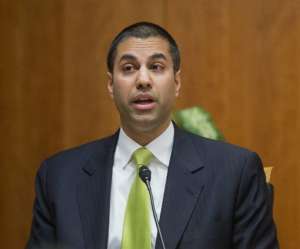To listen to the Federal Newscast on your phone or mobile device, subscribe on PodcastOne or iTunes.
- Agencies need to be careful on social media. The Government Accountability Office found the Transportation Department violated an anti‑lobbying provision in the Financial Services and General Government Appropriations Act of 2017, when it “retweeted” and “liked” a tweet supporting legislation to reform the U.S. air traffic control system. GAO said because DOT obligated and expended appropriated funds in violation of a statutory prohibition, the agency also violated the Antideficiency Act. GAO says DOT should determine the cost associated with the prohibited conduct and include the amount in its report of its Antideficiency Act violation. (Government Accountability Office)
- A pay freeze for civilian employees in 2019 could be on the table. A report from Sen. Claire McCaskill (D-Mo.) says the Office of Management and Budget is considering freezing wages. A budget passback document between the Trump administration and the Homeland Security Department revealed the plan which would exclude members of the military. (Federal News Radio)
- On Capitol Hill, another indication that there’s still a very real threat of a government shutdown. The chairman of the House Appropriations Committee introduced legislation yesterday evening that would fund the Defense Department for all of 2018. But domestic agencies would not receive the same treatment, a key demand of congressional Democrats. Rep. Rodney Frelinghuysen’s (R-N.J.) proposal would leave the rest of the government under a continuing resolution until Jan. 19. The House is set to vote on the plan next week, but it would require support from Democrats to pass the Senate. If it fails, the government would shut down next Friday when the current funding bill expires. (House Appropriations Committee)
- Many service members are experiencing brain trauma from subconcussive hits, similar to those who play football, and the Defense Department doesn’t have many answers on how to protect troops’ heads. The Mayo Clinic offered some protocols to help. They included finding ways to identify brain injuries and removing the individual from risky activity. (Federal News Radio)
- The security clearance backlog reached a new level. The Government Accountability Office said that although the National Background Investigation Bureau has taken steps to improve the process, the backlog grew to over 700,000 cases back in September. GAO said the NBIB needs to come up with a plan to reduce it and establish goals for its investigators. (Government Accountability Office)
- Agencies have about a week to tell the Office of Personnel Management about their plans to comply with the president’s executive order on rescinding labor management forums. President Donald Trump signed the order in September. It abolishes the National Council on Federal Labor-Management Relations and individual forums agencies created with their labor unions. OPM said agencies should be mindful of the president’s finding that the forums took up too much of managers’ time and taxpayer resources. (Chief Human Capital Officers Council)
- The White House’s American Technology Council released its final IT modernization strategy outlining more than 40 recommendations to improve federal cybersecurity and reduce agency reliance on legacy systems. Among the areas the final strategy wants agencies to focus on is creating a security operations center as a service offering. The ATC also will hold a summit with cloud providers to discuss new acquisition approaches. The White House released the draft strategy on Aug. 30 and it received more than 100 comments that helped improve the final draft. (CIO.gov)
- The U.S. Patent and Trademark Office is joining the open data movement. Between 2008 and 2017, examiners issued more than 4 million office actions and citation traits, that is, written decisions on patent applications. Now USPTO has published them all in a series of data sets together with an application programming interface. Chief Data Strategist Thomas Beach said the data will help researchers find technology and innovation trends. Data includes reasons for patent rejections and associated prior art. (U.S. Patent and Trademark Office)
- Retirees can now donate online to the Combined Federal Campaign. The functionality on the Office of Personnel Management’s donation portal is up and running for retirees. It was delayed at the start of the campaign in October, which meant retirees could not send donations since the CFC no longer accepts cash. The CFC runs through Jan. 12. (Federal News Radio)
Copyright
© 2025 Federal News Network. All rights reserved. This website is not intended for users located within the European Economic Area.




